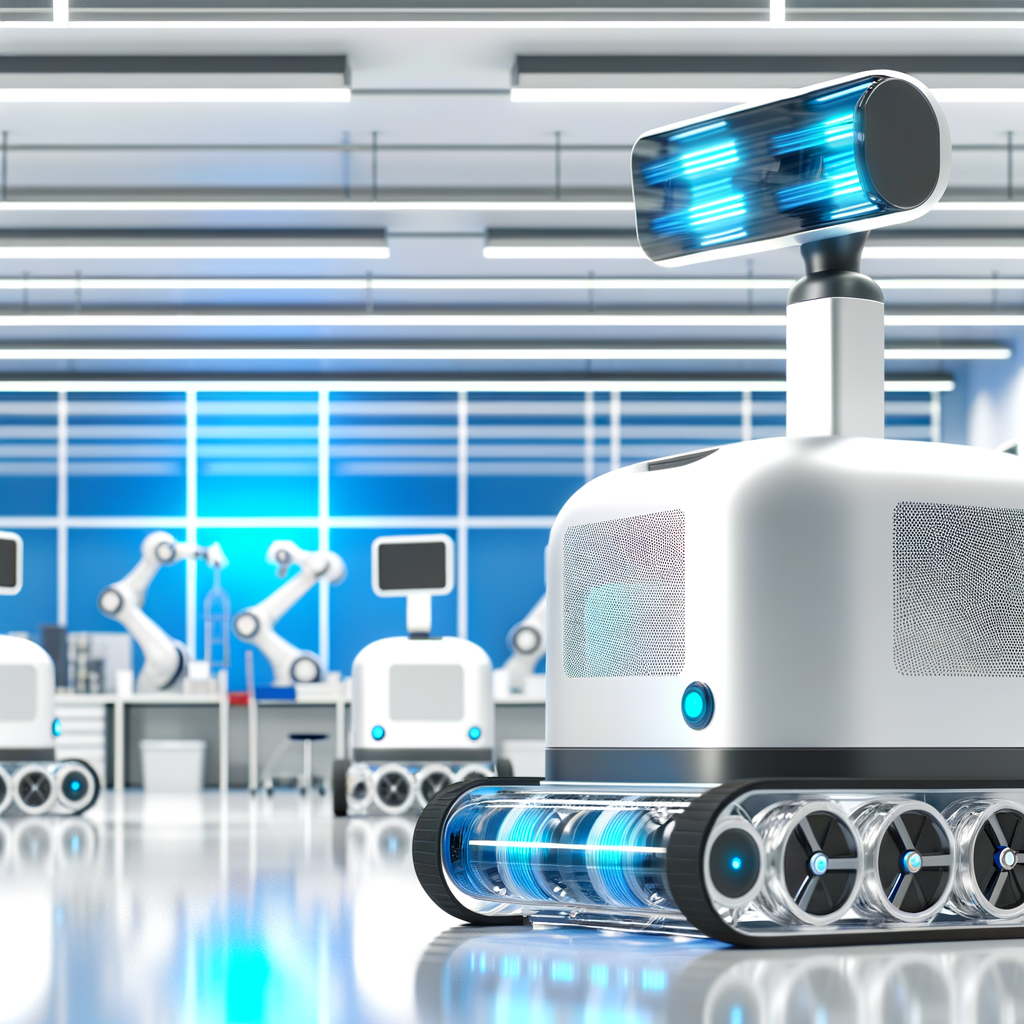AI Robot Army Revolutionizes Facility Management by Primech

**
Cleaning Giant Deploys AI Robot Army: How Primech is Reinventing Facility Management
In an era where technology is reshaping the very fabric of industries, Primech has taken a giant leap forward in facility management by deploying an advanced fleet of AI-powered cleaning robots. This transformation not only revolutionizes the way we perceive cleanliness but also sets a new benchmark for efficiency and innovation in the sector. With the global cleaning services market projected to exceed $100 billion by 2030, Primech's strategic move places it at the forefront of this burgeoning industry, offering a glimpse into a future where facility management is seamlessly integrated with cutting-edge technology.
The Evolution of Facility Management
To truly appreciate the significance of Primech's innovations, it's essential to understand how facility management has evolved over the years. Traditionally, this sector relied heavily on manual labor, with human workers performing a myriad of tasks from cleaning to maintenance. However, the industry has seen a shift towards automation over the past decade, driven by the need for cost efficiency, consistency, and enhanced performance.
The integration of technology began with simple automation tools but has now reached a point where AI and robotics are taking center stage. This transition is not only streamlining operations but also addressing labor shortages, a persistent challenge in the cleaning industry. As traditional methods give way to digital solutions, companies like Primech are leveraging this momentum to redefine what is possible.
Primech's AI-Powered Fleet: A Game Changer
In April 2025, Primech unveiled its latest initiative: a comprehensive deployment of AI robots across its service portfolio. These aren't just any robots—they are sophisticated machines equipped with advanced sensors, machine learning algorithms, and computer vision capabilities. Designed to navigate complex environments with ease, these robots can perform a variety of tasks, including vacuuming, scrubbing, and even detecting environmental anomalies.
According to Primech’s CEO, Lisa Tan, "Our AI robots are not just about efficiency; they are about redefining standards. We are elevating the quality of our services while simultaneously reducing operational costs by up to 30%." This statement underscores the dual benefit of adopting AI: improved service quality and significant cost savings.
Technological Advancements Driving Change
The backbone of Primech’s robotic army is its reliance on cutting-edge technologies like machine learning and computer vision. These technologies enable the robots to learn and adapt to the specific needs of different environments. For instance, a robot deployed in a hospital will have a different operational protocol compared to one in a commercial office space. This adaptability is crucial in ensuring that the robots can meet diverse cleaning requirements efficiently.
Furthermore, advances in battery technology have made these robots more sustainable. With extended battery life, they can operate for longer durations without the need for frequent recharging. This not only enhances their productivity but also reduces their environmental footprint—a critical consideration in today’s eco-conscious world.
Implications for the Future of Work
The deployment of AI robots in facility management raises important questions about the future of work. As these robots take over routine and labor-intensive tasks, there is a growing need to reimagine the roles of human workers. Rather than replacing human jobs, Primech envisions a collaborative model where robots handle repetitive tasks, freeing up human workers to focus on more strategic and supervisory roles.
Industry experts believe this shift will lead to the creation of new job categories, such as robot maintenance technicians and AI supervisors. As the workforce adapts to these changes, there will be an increased demand for training programs to equip workers with the skills needed for this new era.
The Road Ahead: Challenges and Opportunities
While the benefits of AI-powered cleaning robots are evident, there are challenges that Primech and the industry at large must address. Data privacy concerns, for instance, are paramount given the sophisticated sensors used by these robots. Ensuring that customer data is protected and used responsibly is critical to maintaining trust.
Moreover, initial capital investment in AI technology can be significant. However, as with any innovation, the long-term savings and operational efficiencies often justify the upfront costs. Primech’s strategic investment is a testament to its confidence in the transformative potential of AI.
Looking ahead, Primech plans to expand its AI capabilities further, exploring possibilities such as integrating IoT devices and enhancing predictive maintenance features. This forward-thinking approach positions the company as a leader in the AI revolution within facility management.
Conclusion
As Primech rolls out its AI robot army, it not only sets a precedent for the facility management industry but also exemplifies how technology can be harnessed to create smarter, more efficient solutions. The journey from traditional cleaning to AI-driven facility management is a testament to the limitless possibilities of technological innovation. As we look to the future, the potential of AI in transforming not just industries but entire economies is both exciting and profound.
**